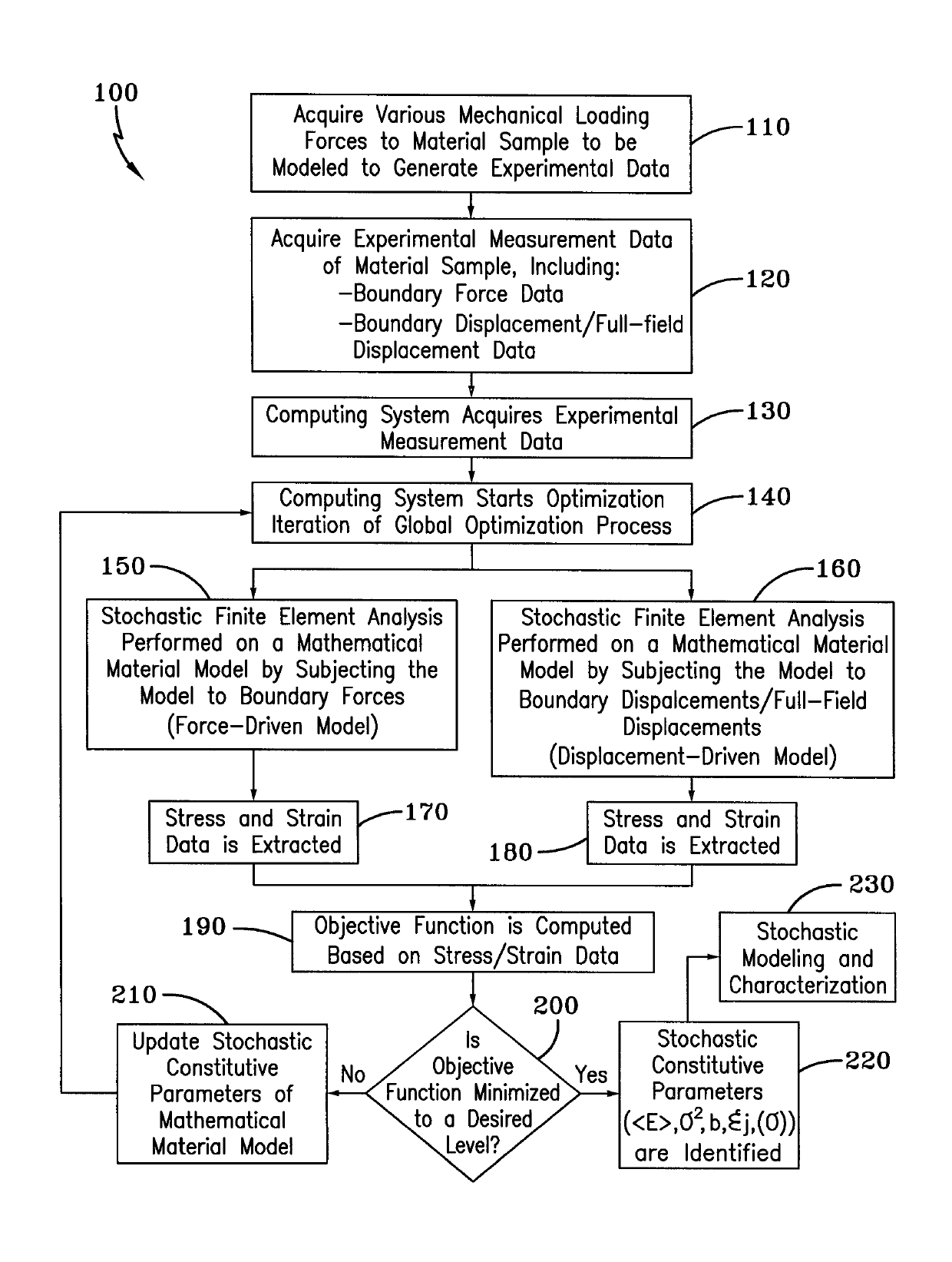Method for identifying stochastic information of heterogeneous materials
a heterogeneous material and stochastic information technology, applied in the field of methods of identifying various properties of materials, can solve the problems of heterogeneous materials with spatial variation of material properties, heterogeneous materials without adequate tools for identifying key stochastic parameters, and inability to identify heterogeneous materials
- Summary
- Abstract
- Description
- Claims
- Application Information
AI Technical Summary
Benefits of technology
Problems solved by technology
Method used
Image
Examples
Embodiment Construction
[0011]A method of identifying stochastic parameters of a heterogeneous material using a self-optimizing inverse computation (Self-OPTIM) technique is referred to by numeral 100, as shown in FIG. 1 of the drawings. It should be appreciated that the stochastic parameters of heterogeneous materials identified by the process 100 may include, but are not limited to: spatial mean, spatial variance, and spatial correlation length of spatially varying properties of the heterogeneous material. Furthermore, an ensemble of multiple reconstructions of the spatial distributions for multivariate random fields may also be obtained by multiple stochastic Self-OPTIM analyses provided by the present invention with reference to multiple experimental test results of the same kind of materials. Moreover, the ensemble of reconstructed distributions can also provide correlation information between the multivariate random fields.
[0012]Initially, at step 110 of the process 100, a physical sample of a hetero...
PUM
 Login to View More
Login to View More Abstract
Description
Claims
Application Information
 Login to View More
Login to View More - R&D
- Intellectual Property
- Life Sciences
- Materials
- Tech Scout
- Unparalleled Data Quality
- Higher Quality Content
- 60% Fewer Hallucinations
Browse by: Latest US Patents, China's latest patents, Technical Efficacy Thesaurus, Application Domain, Technology Topic, Popular Technical Reports.
© 2025 PatSnap. All rights reserved.Legal|Privacy policy|Modern Slavery Act Transparency Statement|Sitemap|About US| Contact US: help@patsnap.com

